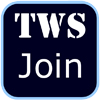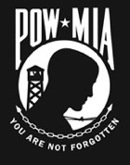 |
- OTHER SERVICES VOICES:
- MARINES
 - NAVY
 - AIR FORCE
 - ARMY
 - COAST GUARD
|
An up close and personal interview with U.S. Coast Guard Veteran and Togetherweserved.com Member:
PO3 Dennis Miller US Coast Guard (1963-1967)
WHAT INFLUENCED YOUR DECISION TO JOIN THE MILITARY?
 I was a senior in high school and I had read a few books about the Coast Guard. I knew my parents wanted me to go to college after high school and so I started looking into the Coast Guard academy. I contacted a recruiter from a city about 70 miles away from my rural home and he came to the High School. We talked, then later on he drove me to his city and next thing I knew I had taken and passed the physical and I was on my way to boot camp without ever considering the Academy after that. Graduated from High School in June and went to Boot Camp at Alameda that same June in 1963. I was a senior in high school and I had read a few books about the Coast Guard. I knew my parents wanted me to go to college after high school and so I started looking into the Coast Guard academy. I contacted a recruiter from a city about 70 miles away from my rural home and he came to the High School. We talked, then later on he drove me to his city and next thing I knew I had taken and passed the physical and I was on my way to boot camp without ever considering the Academy after that. Graduated from High School in June and went to Boot Camp at Alameda that same June in 1963.
BRIEFLY, WHAT WAS YOUR SERVICE CAREER PATH?
 After Boot Camp I was sent to ET School at the Groton Training Center. I only lasted about 10 weeks due to not doing my homework. Placed on mess cooking or galley duty for two months and then shipped out to the 9th district to Base Sault Ste Marie, MI. After a year and a half I made SN and then applied for EM School. I was required to extend my enlistment for six months in order to go to school so I extended. I went to EM school in Groton and passed with flying colors. Then I went back to the 9th District where I was stationed on the USCGC ACACIA WLB-406 out of Port Huron, MI. I made EM-3 and then was discharged in December of 1967 After Boot Camp I was sent to ET School at the Groton Training Center. I only lasted about 10 weeks due to not doing my homework. Placed on mess cooking or galley duty for two months and then shipped out to the 9th district to Base Sault Ste Marie, MI. After a year and a half I made SN and then applied for EM School. I was required to extend my enlistment for six months in order to go to school so I extended. I went to EM school in Groton and passed with flying colors. Then I went back to the 9th District where I was stationed on the USCGC ACACIA WLB-406 out of Port Huron, MI. I made EM-3 and then was discharged in December of 1967
FROM YOUR ENTIRE SERVICE CAREER WHAT PARTICULAR MEMORY STANDS OUT?
The most dramatic part of my years in the Coast Guard occured during November of 1966. I was stationed on the USCGC ACACIA, a sea going, ice breaking buoy tender home ported in Port Huron, Michigan. We got underway one afternoon to transport a small boat to another location and  do some routine buoy maintenance. I was scheduled for the mid watch in the engine room that night so as we got underway I hit the rack about 6 PM or so to get some sleep before my watch. At that time the sky and Lake Huron were slate gray and the lake was as calm and smooth as glass. do some routine buoy maintenance. I was scheduled for the mid watch in the engine room that night so as we got underway I hit the rack about 6 PM or so to get some sleep before my watch. At that time the sky and Lake Huron were slate gray and the lake was as calm and smooth as glass.
I woke up a couple of hours later to the ship rolling and pitching as a storm had suddenly came down from the North and was really hitting hard and fast. After hanging on to the siderails of my rack for an hour or so it was time to report to the engine room for the mid watch. I managed to get down the passageway and down the ladder to the engineroom before the biggest waves started rolling in.
We were steaming full speed ahead abeam of Harbor Beach and for the next eight hours we did not make any headway at all. We never moved more than a mile from our location when normally we would be making about 12 knots.
My first round on watch to go up to the mess deck and then down to the birthing area and down to check on the reefers found me bouncing off bulkhead and dodging the pepsi machine on the mess deck. I looked out the port hole and all I could see was black. The waves were approaching 30 to 40 feet high at times and up on the bridge the cyclometer was registering 30 degree rolls. to check on the reefers found me bouncing off bulkhead and dodging the pepsi machine on the mess deck. I looked out the port hole and all I could see was black. The waves were approaching 30 to 40 feet high at times and up on the bridge the cyclometer was registering 30 degree rolls.
Of course I was sea sick for the first time ever but that didn't seem to be a big deal as I was more concerned about staying upright. At some point during my watch, the EN-1 Sawicki called the bridge and in no uncertain terms told the Captain that he better turn around and head for port as there was water coming down the vents and stack from the waves.
I got off watch at 4 AM and hit the rack where I anchored myself in for a bit of sleep. I woke up about 8 AM to feel the rolling had slacked off but all the engines were dead and nothing was running except the emergency generator that provided for steering and the electronics on board. Apparently all of the turmoil from the ship being tossed around stirred up all the sediment in the fuel tanks and clogged all of the filters. The engine room gang was busily taking apart filters and cleaning and replacing them and we finally got underway back to Port Huron.
After being back in port about 24 hours we got the call that the lake freighter Daniel J. Morrell was missing and last heard from about the same time we were out in the storm and we were only about a mile or two from the last known location.
The CGC Mackinaw and the CGC Bramble joined us in Port Huron and we were involved in a search for the next couple of days. We picked up the bodies of nine dead sailors and the other  cutters picked up a few. There was one survivor that washed up on the beach in a life raft and was picked up by a chopper and taken to Harbor Beach hospital. cutters picked up a few. There was one survivor that washed up on the beach in a life raft and was picked up by a chopper and taken to Harbor Beach hospital.
Dennis Hale was the sole survivor and he wrote a book by the same name. Dennis and I have communicated about our experiences that night...a night and week I will never forget.
OF THE MEDALS, AWARDS AND QUALIFICATION BADGES OR DEVICES YOU RECEIVED, WHAT IS THE MOST MEANINGFUL TO YOU AND WHY?
I only received a couple of medals. Good Conduct, National Service, and Expert Pistol. 
The only real meaningful medal was the Expert Pistol medal. It was meaningful because I had grown up with guns and my father had taught me early on how to shoot and how to hunt and all about gun safety. I should have fired expert on the M-1 but I got lazy and didn't record all of the wind-age and siting in information that I had used the day before qualifying.
I decided that I needed to honor my dad by doing my best when it came to the pistol and I loved firing that old .45 colt. I fired expert and I'm sure my late father was proud of that.
Not much compared to someone in combat earning medals for that sort of thing but it is meaningful to me.
WHICH INDIVIDUAL PERSON FROM YOUR SERVICE STANDS OUT AS THE ONE WHO HAD THE BIGGEST IMPACT ON YOU AND WHY?
When I reported aboard the ACACIA as an FNEM my boss was Tom Stewart, EM-1. He taught me the ropes of shipboard life as far as being an electrician and even though I started by swabbing out the EM shack, he allowed me more and more responsibility as time went on. When I went out partying with a bit too hard a time or two, he cut me just enough slack so that I could survive but I still knew that If I continued to screw up he would nail me good.
I was only stationed with him for a year or so but my last six months on board the ACACIA was as the only EM on board as he and the other EM had not been replaced. If Tom had not taken me aside and taught me during that year I would have been at a loss when emergencies came up over the next six months.
He knew how to party too, but he never let it affect his work and I guess that was the biggest lesson I learned. It is ok to have fun but never allow it to interfere with your job.
CAN YOU RECOUNT A PARTICULAR INCIDENT FROM YOUR SERVICE THAT WAS FUNNY AT THE TIME AND STILL MAKES YOU LAUGH?
Lots of stories of things that happened that were funny at the time but we were a bunch of 18-22 year old kids away from home and each trying to outdo the other when it came to girls, stories, parties and practical jokes. I guess a typical prank would be  something like the time we were all called back from liberty early and nobody was happy about it. something like the time we were all called back from liberty early and nobody was happy about it.
After we left port all the guys were griping and mumbling and sitting around on the mess deck. There was a bos'n striker we called Jake that really like to chew out the deckies and yell and holler a lot and he was a Chicago Bears fan were most of us were Packers fans. He was sitting on the mess deck after getting underway with his nose buried in the sports page of the local paper. I walked by and casually took out my zippo lighter and lit the bottom of the paper and kept walking. It didn't' take long for a wiff of smoke and flame coming up between his legs for him to jump up stomp on the paper and start cussing a blue streak. All but him had a good laugh.
We never gave a thought to the damage that could have been done. We were young and foolish.
WHAT PROFESSION DID YOU FOLLOW AFTER THE SERVICE AND WHAT ARE YOU DOING NOW? IF CURRENTLY SERVING, WHAT IS YOUR CURRENT JOB?
After my discharge I looked for work in various places such as the Navy Yard in Bremerton, Washington where my dad had worked during WWII and I applied for work at the local telephone company in Eugene, Oregon. I drew unemployment for a few months as there just wasn't any  jobs available anywhere. The Boeing SST project had just been canceled and many people in the Northwest were looking for work. jobs available anywhere. The Boeing SST project had just been canceled and many people in the Northwest were looking for work.
My dad called me from his home in Oregon while I was in Bremerton and said that the phone company called for me to come in and interview. I did that and went to work as a day time janitor in the telephone office. Because of my military service and experience I did start on a higher pay scale than at the bottom but still started at less than $2 per hour.
I ended up working for that Baby Bell company for almost 30 years and ended up as a manager supervising many different operations and large numbers of people.
The opportunity came along to take an unpaid leave of absence pending early retirement and the company provided tuition and book fees for me to attend community college and get a two year degree in about one year. After retirement I then used my two year degree to be accepted into an adult degree program at Warner Pacific College where I received my Bachelor of Science degree in about 18 months. My degrees did not cost me a cent out of my own pocket due to scholarships and grants.
I then served with a missions organization raising my own support for a couple of years and then was hired by my church as an outreach pastor for the next 7 years. 4 years ago I left that position and now serve with International Christian Ministries a ministry that focuses on providing leadership training for leaders in Africa and the Middle East.
WHAT MILITARY ASSOCIATIONS ARE YOU A MEMBER OF, IF ANY? WHAT SPECIFIC BENEFITS DO YOU DERIVE FROM YOUR MEMBERSHIPS?
I belong to the American Legion. I appreciate the Legion's efforts on behalf of veterans of all wars and branches of service and keeping me updated on all that pertains to veterans.
HOW HAS MILITARY SERVICE INFLUENCED THE WAY YOU HAVE APPROACHED YOUR LIFE AND CAREER?
I joined the Coast Guard as a very shy and introverted 17 year old socially backward individual with no idea what I wanted to do in life and felt I had never succeeded or would succeed at anything.
Starting with boot camp where I spent a week in "X" Company  after my company graduated because I failed the PT test and then succeeding in passing the test after that week, and enduring and succeeding in boot camp overall, I knew I could face just about anything after that. after my company graduated because I failed the PT test and then succeeding in passing the test after that week, and enduring and succeeding in boot camp overall, I knew I could face just about anything after that.
I wasn't all that good of an electrician or sailor but the relationships I made with my shipmates during that time and the realization that I was responsible for my own actions and that I could take responsibility for doing a job no one else could do went a long way to prepare me for adult hood.
I don't think I really began to "grow up" until I was 50 years old (and that's another story) but without serving in the Coast Guard I don't believe that I would have ever grown up in any way shape or form.
WHAT ADVICE WOULD YOU HAVE FOR THOSE THAT ARE STILL SERVING?
My advice is to do everything you can to experience other cultures, challenges and opportunities to enlarge your view of the world. Americans are in the minority and no other country on earth offers what America does to people who are self starters and willing to try anything.
Take advantage of any educational opportunity. Have a blast with your shipmates but stay out of trouble.
If you think the Coast Guard might be a career go for it. When you're young, 20 years seems like forever but it goes by in the blink of an eye.
Seek direction from mentors and be open to God's leading.
IN WHAT WAYS HAS TOGETHERWESERVED.COM HELPED YOU MAINTAIN A BOND WITH YOUR SERVICE AND THOSE YOU SERVED WITH?
TWS reunited me with one shipmate from a long time ago and I doubt we would ever have crossed paths otherwise. I really enjoy seeing other peoples Reflections on these questions and the memories that are shared.
| |
|
Share this Voices Edition on:



 |
|
TWS VOICES
TWS Voices are the personal stories of men and women who served in the US Military and convey how serving their Country has made a positive impact on their lives. If you would like to participate in a future edition of Voices, or know someone who might be interested, please contact Diane Ruth, TWS Military Heritage Director HERE.
This edition of CoastGuard Voices was supported by:
CoastGuard.Togetherweserved.com
For current and former serving Members of the US Coast Guard and US Coast Guard Reserve, TogetherWeServed is a unique, feature-rich resource enabling Coast Guardsmen to re-connect with lost Shipmates, share memories and tell their Coast Guard story.
To join CoastGuard.Togetherweserved.com, please click HERE.
|
|